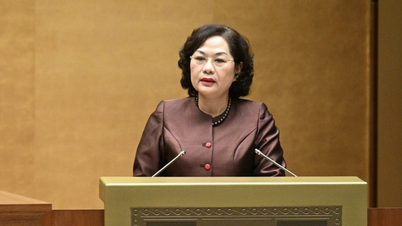Nominal GDP is the total value of goods and services produced within a country, calculated at current prices excluding inflation.
According to IMF estimates, Germany's GDP will reach $4.43 trillion this year. Meanwhile, Japan's figure is only $4.23 trillion, so the size of the German economy will be only behind the US and China. The IMF also forecasts Germany's average GDP to be $52,824, while Japan's is $33,950.
Part of the reason for this change in fortunes is the weakening of the Japanese yen, which reduces GDP when converted into dollars. The yen is now approaching 160 yen to the euro, a level last seen in August 2008.
On October 24, the Japanese currency broke through the 150 yen to $1 threshold for the second time this year. Last year, the yen's move to that level prompted Japanese authorities to intervene in the currency market.
The yen has weakened due to the interest rate differential between Japan and the West. While the US and the European Union (EU) have raised interest rates aggressively to fight inflation, Japan has maintained negative interest rates. While the US Federal Reserve (FED) and the European Central Bank (ECB) are expected to keep interest rates unchanged at their upcoming meetings, expectations that borrowing costs will be higher for longer are likely to keep pressure on the Japanese currency.
The Bank of Japan (BoJ) meets next week amid speculation about possible adjustments to its ability to control bond yields, but an end to negative interest rates is not widely expected until next year. However, data that also showed more stable long-term growth in Germany will worry policymakers in Japan as they consider the details of their latest economic package.
Asked about the IMF forecast, Japanese Economy Minister Yasutoshi Nishimura said: “It is true that Japan’s growth potential has fallen behind and remains sluggish. We want to regain the ground we have lost over the past 20 or 30 years. We want to achieve that through measures such as the upcoming stimulus package.”
Prime Minister Fumio Kishida said on October 23 that the stimulus package includes an extension of the energy subsidy, a measure aimed at helping ease the cost-of-living crisis caused by inflation that has risen to its highest level in decades. He also said there would be measures to ensure wage growth continues, along with some form of tax cut.
Despite a prolonged period of slow growth, Japan has maintained its position as the world's third largest economy for more than a decade. In the coming years, Japan's ranking may continue to decline. The IMF forecasts that Japan will slide to fifth place in the 2026-2028 period. At that time, India may surpass it to become the world's third largest economy./.
Source link






![[Photo] Prime Minister Pham Minh Chinh attends the event "Digital transformation of the banking industry by 2025"](https://vphoto.vietnam.vn/thumb/1200x675/vietnam/resource/IMAGE/2025/5/29/0e34cc7261d74e26b7f87cadff763eae)























![[Photo] Prime Minister Pham Minh Chinh receives leaders of Excelerate Energy Group](https://vphoto.vietnam.vn/thumb/1200x675/vietnam/resource/IMAGE/2025/5/29/c1fbe073230443d0a5aae0bc264d07fe)





























































Comment (0)